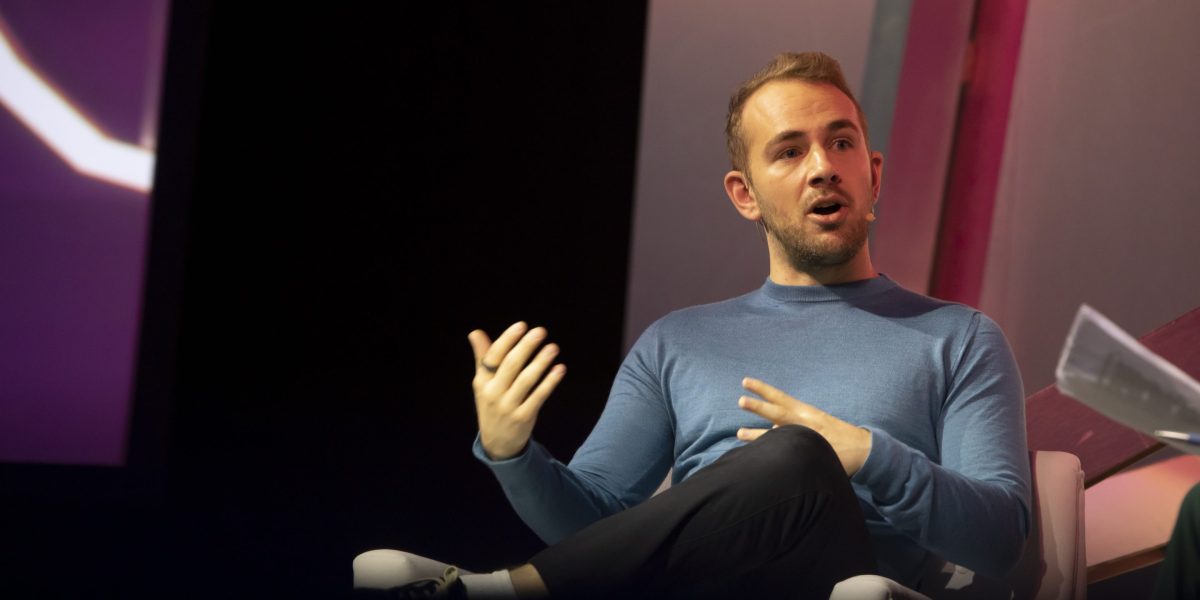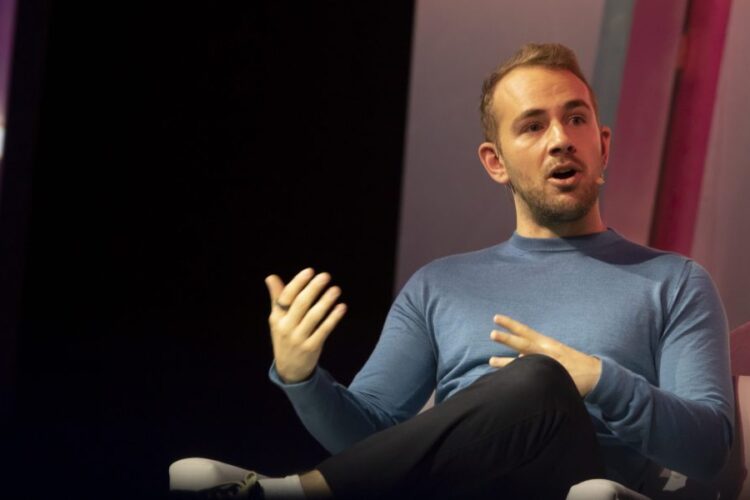
“We’re reorienting the team around OpenSea 2.0, a big upgrade to our product,” said Finzer in a thread on X (formerly Twitter) about his NFT company, which was once valued at more than $13 billion. “So today, we’re saying goodbye to a number of OpenSea teammates.”
Finzer’s announcement, however, didn’t include details on how quickly the company had laid off its staff—for some, within an hour—or how, just two days after the layoffs, he had scheduled an almost two-week-long company retreat at a $9 million mansion once owned by Katy Perry and Russell Brand, according to three sources familiar with the matter, screenshots of company Slack messages, and a memo Finzer wrote to his surviving staff. All sources were granted anonymity because they were not authorized to speak publicly about internal company matters.
“We are making significant organizational and operating changes as we focus on building a more nimble—and ultimately better—version of OpenSea,” a company spokesperson said in a statement to Fortune. “We are immensely grateful for the contributions of those who are leaving OpenSea.”
The pivot for Finzer and OpenSea, once a Silicon Valley darling, comes during an existential period for the company and for the greater market as a whole, as monthly trading volumes for NFTs have plummeted—from approximately $1.2 billion in February 2022 to about $307 million as of October, according to data from CryptoSlam. Moreover, competitors like Blur and now Magic Eden have gained market share and put the onetime NFT titan on the defensive.
“The future is exciting, but that doesn’t minimize the painful, sad human element of these changes,” Finzer wrote in the memo to current employees. “The hardest part of the changes today are the goodbyes.”
The all-hands
Three minutes before an already scheduled all-hands meeting on Nov. 3, Finzer sent the following message to the “general” Slack channel: “Hey everyone, just a heads up that we’ll have some difficult changes to announce at the upcoming All Hands today. Due to the sensitive nature of these changes, we’ll be in ‘listen only mode.’”
Staffers gathered on the Zoom call, and Finzer immediately told them—most without any forewarning—that half of them no longer had a job. (Higher-up executives were looped in about the layoffs earlier in the week, according to screenshots of Finzer’s memo.)
He said that those impacted would receive an email in the next few minutes confirming the bad news. Employees immediately started dropping off the call after Finzer, who appeared to feign contrition, announced the layoffs, according to a source familiar with the matter. (Finzer had shut off employees’ ability to speak during the Zoom call.)
Many of those fired lost access to OpenSea systems and their laptops within an hour of the call, according to two sources familiar with the matter. (An OpenSea spokesperson said the exact time of deactivation varied per employee and that it is common practice to remove employees’ access to company devices immediately after termination.)
Remaining OpenSea executives and managers had one-on-one conversations with those soon to be let go, and ex-employees are to receive four months of cash severance and six months of health insurance coverage, among other benefits, according to his memo.
“To be clear, the fact that the magnitude of these layoffs is so large and that we’re parting ways with so many people near and dear to you all, is ultimately my fault,” wrote Finzer. “While I stand by this being the best move for the company, I also recognize that the decisions I made as CEO have resulted in real human pain.”
The mansion
Two days after the layoffs, Finzer and about 50 employees—half of those remaining—shipped off to a company retreat at a mansion in West Hollywood and will be there until Nov. 17, according to both a screenshot of a message from Stephanie Selvius, OpenSea’s interim “head of people,” and a person familiar with the matter. (An OpenSea spokesperson confirmed that there is currently an employee offsite in the Los Angeles area but declined to specify the location.)
“There are no bad rooms,” Selvius wrote, in reference to the almost 11,000-square-foot mansion. “[F]irst come, first serve.”
Per property records, the Hollywood home is worth north of $9 million and is owned by Lorenzo Doumani, a Las Vegas real estate developer who bought it in 2013 and now rents it out for corporate retreats, among other events. Katy Perry and Russell Brand were the previous owners, according to NBC, and decided to sell the house after their 2012 divorce. As of February 2023, the monthly asking rent for Perry’s former domicile was about $275,000, per the Real Deal.
An OpenSea spokesperson said that a large rental is more cost-effective than, for example, the expenses associated with renting out a conference center. The company also said that the cost of the mansion, which it declined to disclose, was secondary to the benefits of using it to focus the remaining staff on OpenSea’s new corporate direction.
“Hidden sauna in the gym…goals,” wrote one employee on Slack of the mansion’s amenities.
OpenSea 2.0
Finzer and OpenSea staff gathered at the Hollywood home, built in 1921, to sketch out his vision for OpenSea 2.0. (The Slack channel where Selvius, an OpenSea executive, posted details about the company retreat was named “os2-la-offsite.”) However, the details surrounding OpenSea 2.0 remain vague, even according to Finzer’s memo to surviving staff. “We’re playing defense when we should be playing offense, and we’re following as opposed to leading,” he wrote.
In his memo, Finzer did specify OpenSea’s reorganization plan. The engineering and product teams will have a staff of 40, with “no managers and no titles for the time being,” and the company is moving toward “radical transparency,” opening up, for example, most channels on Slack to all employees.
As for the product itself? Finzer wrote that OpenSea has lots of “technical debt,” or aging infrastructure that is cracking underneath what he called “a shaky foundation.” Rather than fixing things piecemeal, he said, he’s leading a total rewrite of all company code.
“But given that we’re rebuilding OpenSea, it wouldn’t make sense to build an identical product,” he wrote in his memo. “As we rebuild, we want to reimagine the OpenSea experience, fix the most painful user issues, simplify, unify, remove functionality that’s not useful, and delight our end users.”
But what does this sea of buzzwords actually mean? Said a source familiar with the matter: “I wish I knew.”

